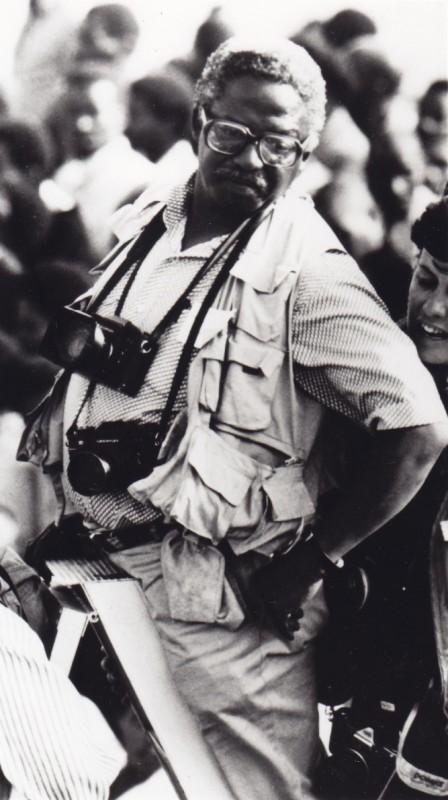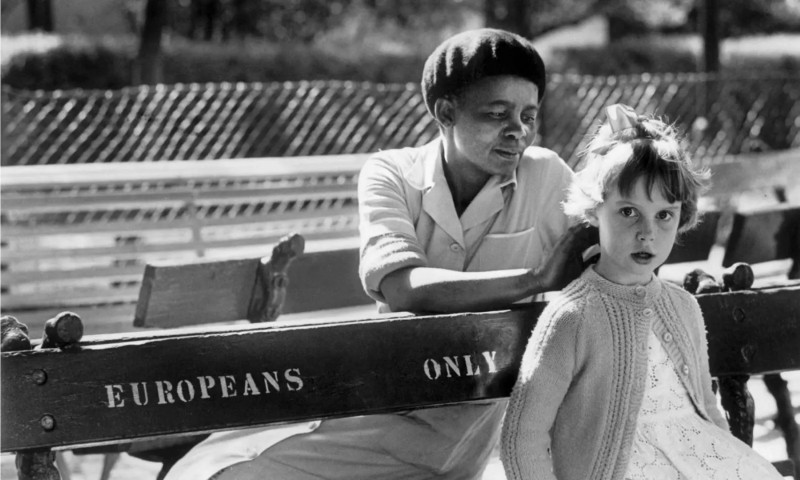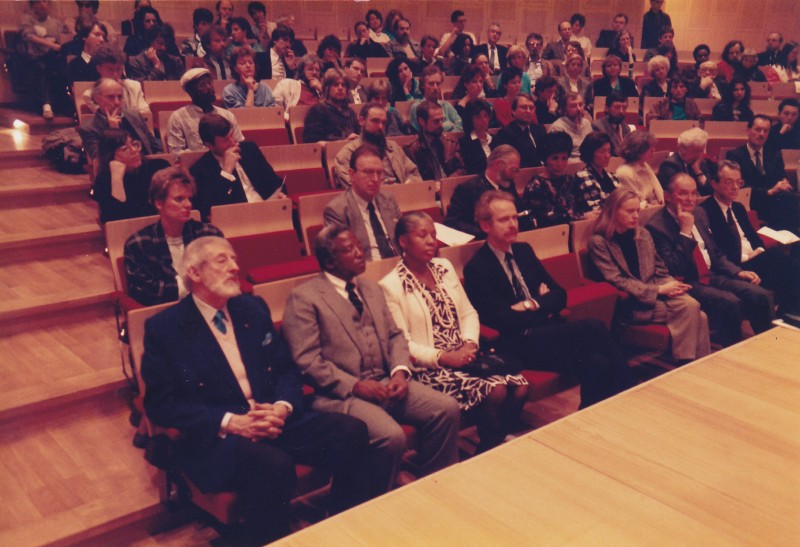Obituary: Peter Magubane
Obituary: Peter Magubane
January 23, 2024

Peter Magubane, the eighties © Peter Magubane
Born Peter Sexford Magubane on January 18, 1932 in Vrededorp (today Pageview, a suburb of Johannesburg), the youngster grew up in Sophiatown. He started using a Kodak Brownie box camera, while still at school. As a photojournalist in the mid-fifties, he began documenting the everyday racism of the Apartheid system. In doing so, he was frequently attacked and, in 1985, even shot at. He landed in prison a number of times, spending 600 days in solitary confinement, and was banned from working in his profession for many years. “We were not allowed to carry a camera in the open if the police were involved, so I often had to hide my camera to get the pictures I wanted. On occasion I hid my camera in a hollowed-out Bible, firing with a cable release in my pocket. At another time, at a trial in Zeerust from which the press were banned, I hid my Leica IIIg in a hollowed-out loaf of bread and pretended to eat while I was actually shooting pictures; when the bread went down, I bought milk and hid the camera in the carton. And I got away with it. You had to think fast and be fast to survive in those days,” the photographer recalled.
Magubane photographed many of the country's historic moments, and was present at the Sharpeville massacre, when around 70 black people were shot by the police. He also covered Nelson Mandela's trials early on. His best-known picture, which was to become an international sensation, was taken in 1956: the portrait of a white girl on a bench designated “only for Europeans”, accompanied by her black nanny, who had to sit on the back side of the bench. Starting in 1967, Magubane worked for the Rand Daily Mail, and in 1978 became a freelance photographer for TIME magazine. From 1990 up until the presidential elections of 1994, he was Nelson Mandela's official photographer, and later on he worked for organisations such as the United Nations. Magubane published numerous photo books and was the recipient of many awards, including the The Dr. Erich Salomon Award of the Deutsche Gesellschaft für Photographie (DGPh) in 1986, and the 1997 Leica Lifetime Achievement Award in 1997, given jointly with the Mother Jones International Fund for Documentary Photography.
Despite all the repression, arrests and personal threats, leaving the country was never an option for the photographer. The fight against Apartheid had to be documented by the people impacted, he explained: “I used my camera as a gun. I did not want to carry a gun, and kill people. I used my camera as a weapon, and I think I was very successful.” As of the late nineties, Magubane focused on personal projects, and, among other subjects, documented the surviving tribal cultures in post-Apartheid South Africa, in colour.
Peter Magubane's daughter, Fikile Magubane, announced the passing of her father, on January 1, 2024, just seventeen days before his 92nd birthday.

Peter Magubane, the eighties © Peter Magubane

Europeans Only, Johannesburg 1956 © Peter Magubane

The lecture hall at the Berlin Musical Instrument Museum on the occasion of the award ceremony when Peter Magubane's received the 1986 Dr Erich Salomon Award Prize (Courtesy DGPh)